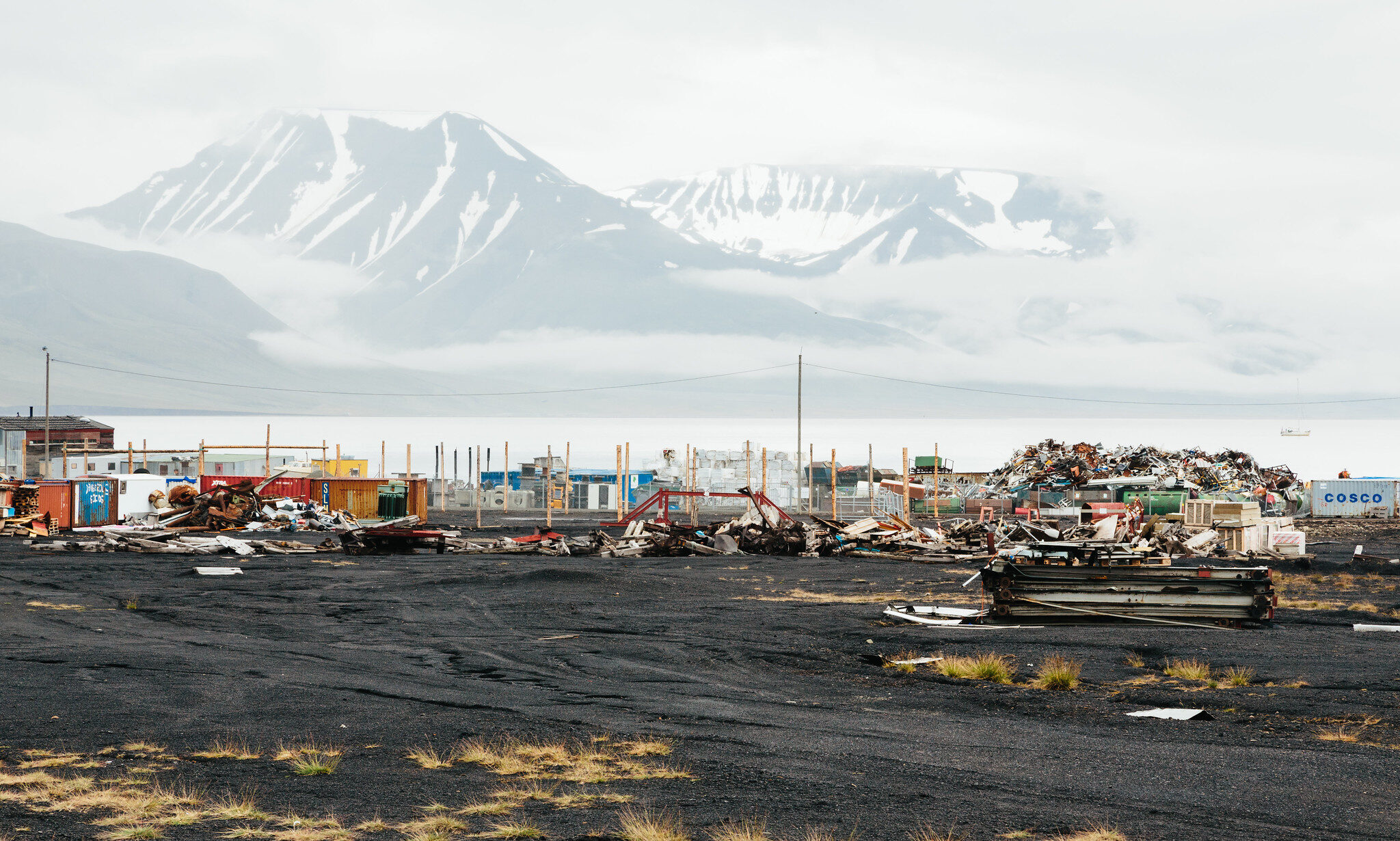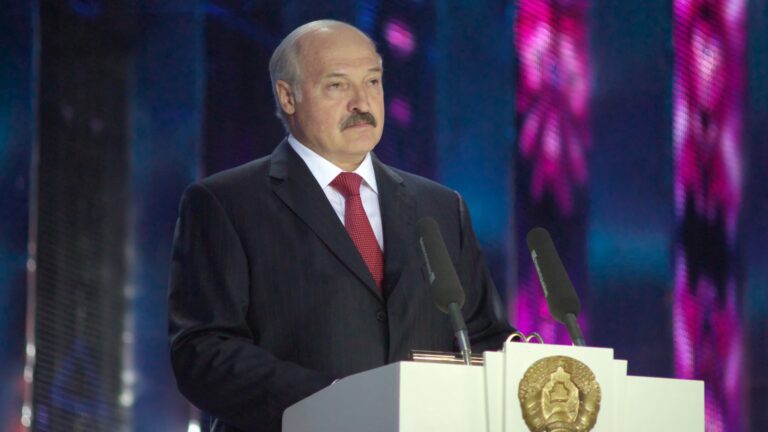
This article is based on a report titled ‘Sino-Russian cooperation in the Arctic: Implications for Nordic countries and recommended policy responses’ originally published on October 22, 2024, by the Swedish National China Centre at the Swedish Institute of International Affairs (UI).
China has supported Russia politically and economically since the latter’s full-scale invasion of Ukraine in February 2022. While limitations and red lines between the two have become increasingly apparent, cooperation has persisted and even deepened in some areas, despite Western sanctions and criticism. This includes a pledge to collaborate more closely in the Arctic, a region where Russia has historically been cautious about granting China access and influence.
This article examines the prospects for Sino-Russian collaboration in the Arctic, focusing on energy, critical raw materials, shipping, security, and governance, along with potential consequences for Europe.
Energy and CRMs: Sanctions and Tech Protectionism Limit Cooperation
While Western countries have imposed sanctions on Russian energy, China has increased its imports of liquified natural gas (LNG) and crude oil from the Russian Arctic, benefiting from discounted prices of these imports. At the same time, however, Chinese partners have suspended their involvement in one of Russia’s flagship Arctic energy projects – Arctic LNG 2 – to avoid the impact of Western sanctions. The Chinese company Wison New Energies has continued to supply modules to the project, although, attempting to do so covertly, it was hit with US sanctions in January 2025. Beijing also appears hesitant to make firm commitments to future energy ventures with Russia. For example, despite Putin’s efforts to secure an agreement, China has yet to fully commit to the Power of Siberia 2 project, a planned pipeline to transport natural gas from the Yamal Peninsula to China via Mongolia.
Increased cooperation between the two powers has also emerged in the area of critical raw materials (CRMs), driven by several factors, including Western sanctions on Russia and efforts to “de-risk” from China by establishing “China-free” supply chains. There are now signs of deeper Sino-Russian collaboration in mining and mineral explorations in the Arctic. For instance, in early 2023, China Communications Construction Company and Rustitan agreed to jointly develop the Pizhemskoye titanium deposit, whereas in 2024, the Chinese company MCC International Incorporation partnered with Polar Lithium to develop the Kolmozerskoye lithium deposit on the Kola Peninsula.
There are also signs that Moscow is working to integrate its CRM supply chain with China’s by investing in Chinese companies. The aim is to offset the impact of canceled partnerships and export bans on certain CRMs imposed by Western countries. Despite these developments, however, Russia remains cautious about becoming too dependent on China in this area. To move up the CRM value chain, Russia needs to develop cutting edge processing technology – technology that China possesses but is unlikely to share, even with a strategic partner like Russia. A full-fledged “critical mineral alliance” between the two thus appears unlikely. In December 2023, China imposed a formal ban on the export of rare earth processing technology, and in early 2025, China’s Ministry of Commerce proposed tighter restrictions on battery technology exports, including lithium processing. It remains unclear how these new restrictions, if implemented, will affect the Sino-Russian lithium partnership.
Chinese energy companies will likely continue to balance support for Russian energy projects with the need to avoid Western sanctions. The primary consequence of increased Sino-Russian energy cooperation for Europe is that the revenue from Chinese imports of oil and LNG is fueling Russia’s war economy. For European governments, strengthening the enforcement and monitoring of existing sanctions will therefore be important. Additional measures, such as a price cap on Russian LNG, could also be considered. When it comes to CRMs, European countries should focus on reducing their excessive reliance on China for these materials by enhancing cooperation within the EU and investing in diversified supply chains and processing capabilities.
Military and Shipping: Cooperation Held Back by Diverging Priorities
Although Sino-Russian joint military exercises have for the first time reached into the Bering and Chukchi seas, it is unclear whether this indicates a genuine intention to cooperate more closely or is merely posturing aimed at deterring the US and its allies. Deeper cooperation appears to be limited by several factors. While China has growing military interests in the Arctic, these are not nearly as significant as Russia’s. Unlike Taiwan or the South China Sea, the Arctic is not considered a “core interest” by China; instead, it is viewed as a “strategic new frontier” – i.e., a future arena for great power competition over geopolitical influence and strategic resources, and a region where China must establish a presence and develop strong capabilities to achieve its goal of becoming a global superpower.
Because of this, the main military threat to Europe in the Arctic currently comes from Russia, rather than any potential Sino-Russian alliance. Nonetheless, Sino-Russian cooperation on dual-use research and technologies could present risks to European countries that warrants careful evaluation. Additionally, there may be an increase in suspected hybrid attacks in the Arctic, such as the severing of submarine communication cables or pipelines, where proving sabotage is difficult and where attributing responsibility to Russia, China, or potentially both remains challenging.
Arctic shipping remains another source of friction between China and Russia, despite their rhetoric about deepening cooperation. The two countries have differing visions of China’s “Polar Silk Road.” While Russia prioritizes the Northern Sea Route, which runs through its exclusive economic zone, China envisions a broader network connecting all Arctic shipping routes with ports, railways, airports, and supporting infrastructure. Achieving China’s vision would thus require collaborating with countries beyond Russia, particularly the Nordic states; and although any Chinese-Nordic cooperation in the Arctic is constrained by current geopolitical tensions, Russia fears that this could reduce its role to that of a mere transit corridor. This could explain why their joint statements avoid using the term “Polar Silk Road,” referring to the development of “Arctic waterways” instead.
Moreover, Western sanctions targeting Russia’s energy revenues have led many shipping companies to withdraw their fleets, forcing Russia to rely on less safe and less capable tankers, which lack the reinforced hulls necessary to navigate icy waters, increasing the risk of accidents and oil spills. With Arctic governance mechanisms partially suspended, coordination on data sharing and emergency response has weakened, further heightening such risks. Given the extreme difficulty of cleaning up an Arctic oil spill, this remains a critical concern.
Although cooperation between Arctic states in these areas never fully ceased, tensions between Russia and the other Arctic states – especially if they intensify – could still hinder effective communication, delay data sharing and complicate joint exercises. Because of this, the Nordic countries should continue advocating for the resumption of Arctic Council working group activities, whereas the EU should consider further tightening of sanctions on Russia’s shadow fleet. This could help reduce the risk of hybrid threats, including the destruction of underwater cables and pipelines linked to Russia’s shadow fleet, regardless of whether these are the results of accidents or intentional sabotage.
Arctic Governance: Yet Another Friction Area
Arctic governance has long been a source of friction between Russia and China. Russia supports the status quo, while China wants to reshape the governance structure to gain more influence. Russia initially opposed China’s bid to join the Arctic Council as an observer, which was granted in 2013, and has rejected China’s self-designation as a “near-Arctic state.”
The Arctic Council itself faces several challenges, having suspended most of its activities in response to Russia’s invasion of Ukraine. In early 2024, Russia not only halted payments to the council but also threatened its withdrawal. While working group activities have since resumed in a virtual format, high-level meetings remain suspended. Experts warn that Russia’s exit from the council could lead to its collapse, while prompting Russia to form a rival body, inviting China and other Russia-friendly countries to join and thus further destabilizing Arctic governance.
A continuation of the current status quo – i.e., the Arctic Council survives and might eventually find a way to restore more of its normal activities – appears to be the most likely scenario. This arrangement is likely to perpetuate further tensions between China and Russia, with China seeking a governance framework that could grant it greater influence and Russia preferring to keep non-Arctic states at bay to maintain its dominance.
The most effective response for Europe may thus be to support and strengthen the existing Arctic governance framework. This approach leverages the inherent friction between China and Russia, confines aspect of their cooperation to multilateral bodies like the Arctic Council and allows for easier monitoring of their activities. For now, Sino-Russian collaboration on Arctic governance remains limited, suggesting that associated risks are relatively low.
Conclusion
Sino-Russian cooperation varies according to specific areas, with each area having unique limits and risks requiring tailored responses. The wholesale exclusion or isolation of China and Russia from Arctic cooperation is not realistic and could backfire, potentially driving them closer together. Moreover, as strict limits on European collaboration with Russia in the Arctic will remain in place for the foreseeable future, there is an increasing concern as to how to balance the continued pressure on Russia with limited cooperation on selected areas such as climate research, which has been severely undermined by the lack of Russian data, all while preventing Russia from forming new alliances with China and other “Russia-friendly” countries in these very areas.
Written by
Patrik Andersson
Patrik Andersson is an Analyst at the Swedish National China Centre at the Swedish Institute of International Affairs (UI). His PhD examined China’s foreign policy priorities in the Arctic and its interest in Arctic mineral resources.


